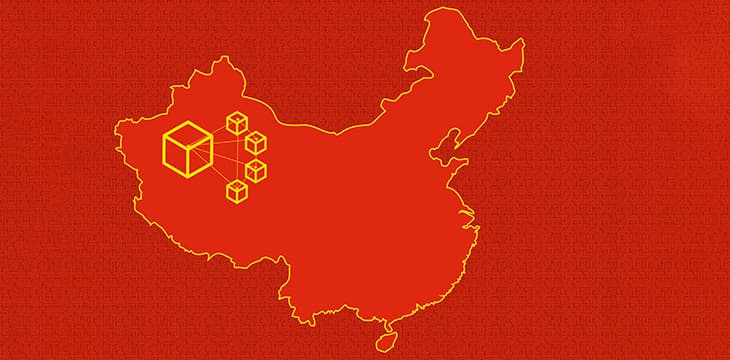|
Getting your Trinity Audio player ready...
|
China has grabbed headlines globally for its crackdown on digital assets, block reward mining, ICOs, and even a partial crackdown on NFTs. However, according to a new report, the country is a global leader in blockchain technology development and is home to over 1,400 blockchain companies.
In a document titled “2022 Blockchain Whitepaper,” the state-owned China Academy for Information and Communications Technology (CAICT) revealed that mainland China is home to over 1,400 companies developing blockchain solutions. This makes the country one of the world’s biggest blockchain hubs. According to the report, China and the U.S. account for over 50% of all blockchain companies globally.
China is also named a leader in blockchain education, a key tenet that has contributed to the growth of the industry in the country. CAICT’s report says that at least 48 institutions of higher education in the country offer some form of blockchain-related course.
Xi Jinping’s government has continued to support blockchain development in China, despite its hostility towards Bitcoin. Jinping has in the past called for China to take up the lead in blockchain adoption.
This is despite the country banning block reward mining in 2021 and the government’s continued crackdown on the industry since then. It banned ICOs years ago and warned the public against investing in the metaverse.
China has also been hostile towards NFTs, most of which are traded for digital assets. This has forced most Chinese companies to use the not-so-aggressive “digital collectibles” to describe NFTs for months. However, a Hangzhou court recently ruled that NFTs are online virtual property that must be protected by Chinese law.
CAICT’s report indicated that there are four main blockchain developments that can benefit China the most. These include telecom companies whose fee structure can benefit from blockchain’s transparency; consumers who can scan their food to determine the source; cross-border payments in which due diligence on counterparties would be easier; and regulators who can easily spot irregularities between various exchanges.
Watch: Lise Li talks Bitcoin SV’s rapid growth in China

 02-28-2026
02-28-2026 




